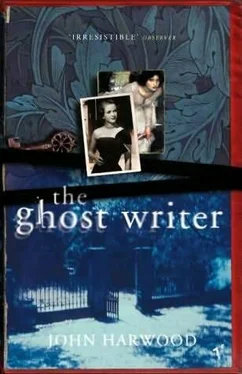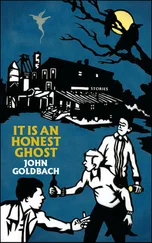At Staplefield, my mother and Rosalind could go anywhere they liked in complete safety, whereas boys who wandered away from home in Mawson would be dragged into cars by strange men and taken away and murdered, if the street gangs didn't get them first. Our house was a red brick bungalow on the edge of the old town, but double brick, as my father never tired of saying, not like the shoddy brick veneer they're building nowadays.
Like every other house in our street, it sat squarely on a quarter-acre of dead flat ground. There was one step up to the front porch and into the hall, which was always gloomy once the door had closed. We had plaster walls, cream with an odd brownish tinge, and dark green patterned carpet that smelled faintly of dog, even though we'd never had one. To the right was my mothers bedroom, the largest of the three, then the sitting-room (never to be called 'the lounge'). To the left was my fathers bedroom, then mine, then the kitchen with its grey linoleum, green-painted plywood cupboards, Laminex table and chairs, and an old yellow fridge which opened with a pull handle. At night I could hear the wheeze and rattle when the motor started up. You went on through a doorway to the bathroom and laundry and a tiny alcove we called the study, on the left opposite the sunroom. The sunroom itself was a lean-to extension made of cement sheet and hardboard, the only room in the house where it was light all day.
As I grew older the paddocks at the end of the street became development opportunities and then subdivisions as the shoddy brick veneer suburbs rolled over us, but we stayed put. Instead of mayflies we had Portuguese millipedes, uncountable armies of them, coming up out of the leaf litter when the autumn rain set in, armoured, segmented, swarming towards the light. In winter, if my father forgot to spray the paths, the inside walls would turn black overnight. You had to get the broom, sweep them off the walls, gather up the writhing mess with a brush and pan and carry them out by the bucketload. They were quite harmless but my mother hated the damp, clammy feel of them. And if you squashed even one, the bitter pungent smell seemed to follow you around the house.
In summer the millipedes went underground and the ants came in, an endless black column that no amount of poison would keep out of the food cupboard for more than a few hours. Kitchen ants were not supposed to bite but if you stood too long barefoot near one of their trails you would feel the nip nip nip of tiny jaws. Outside in the yard we had fierce orange bull ants whose bite was like a red-hot needle; and, for a season, two nests of the dreaded inchmen. Half a dozen of those could put you in hospital; if you slipped and fell against the mound you were as good as dead. Likewise if you were foolish enough to leave an open can of soft drink unguarded: a wasp would climb in through the hole, sting your throat as you swallowed and you would choke to death. Funnel-web and redback spiders lurked in the woodpile behind the shed; you had to wear heavy rubber gloves to gather firewood until we changed over to bottled gas, and stamp very loudly as you approached in case a deadly brown snake like the one that killed Mrs Noonan's cat was sharing the woodpile with the spiders.
At Staplefield they did not need flywire and could leave their windows open on summer nights. We had fine mesh screens on all the doors and windows, to keep out the small black flies which rose in clouds around the back door when anyone approached, clogging your eyes and nostrils and crawling into your ears, and the huge lumbering blowflies that according to my mother vomited whatever they had last eaten over your food as soon as your back was turned. But no wire, however fine, would keep out the flying ants that swarmed on the first hot night in spring, worming through the mesh to form a dense cloud around the light bulb. In the morning, feebly twitching bodies lay in a drift of severed wings.
If it hadn't been for my mother's stories, perhaps Mawson-street gangs, millipedes and all-would have been simply home to me. But for as long as I could remember, I had wondered why we didn't go to live at Staplefield. Asking her for reasons, though, did not just break the flow of recollection, but sent it into reverse. It wasn't simply that Staplefield had been sold to other people long ago, or that we couldn't possibly afford a house like that today. England too had come down in the world. Where once the chaffinches had sung, mountains of garbage now accumulated on every street corner, breeding giant rats which ate babies and thrived on the strongest poisons. No more long, cloudless summers; now it rained for eleven months of the year, and you could not get coal or electricity for weeks at a time. By the time I was seven or eight, I had learned not to ask, but the questions remained. Nobody in our street had an upstairs room, let alone a cook, and it was hard to see why you would need a whole extra person just to grill chops, boil vegetables, and open tins of fruit. Nevertheless, I could not help seeing our lack of staircases and servants as one more consequence of the obscure misfortune which had landed us in Mawson.
ALL AFTERNOON I STAYED HIDDEN BEHIND A STACK OF TIMber in the garage, expecting another beating. But she did not call, and eventually hunger and thirst drove me inside to face a long interrogation. No, I told her several times-'Look me in the eye, now, Gerard'-I had not done anything except look at the picture of the woman. I wanted to ask who she was, but I didn't dare, then or afterwards.
'Prying into other people's private things is a terrible sin,' she said finally-'sin' was a word she seldom used-'like opening their letters or reading their diaries or listening at doors. Promise me you'll never, never, never do anything like that again.'
I promised, which did not prevent me from sneaking into her bedroom at the first opportunity, only to find the drawer locked again, and the key no longer in its hiding place.
BY THE END OF THE SUMMER HOLIDAYS MY MOTHER HAD apparently forgotten my trespass. But something had been lost between us, something I could not identify until I realised that since the day she caught me with the photograph, she had not once mentioned Staplefield or Viola. I tried again and again to draw her out, in vain; at the merest hint of an approach, she seemed to suffer an attack of deafness, assuming a look of blank incomprehension until I changed the subject or slunk away.
It seemed a double punishment. Talking of Staplefield had been the one thing more or less guaranteed to soften the lines of worry etched into her forehead. Now I had not only proved myself too wicked to re-enter that enchanted world; I had deprived her of the comfort of talking about it. I crept about the house, trying to be good, or at least appear good, but it made no difference. My father kept even more out of the way than usual.
Gradually, I came to realise that my mother did not love me any less; indeed as I moved on to high school and adolescence, she seemed to become ever more anxious on my behalf. Unlike some of my schoolfriends, I had never been allowed to roam freely, but nor did I really want to; the world beyond the local shops a few hundred yards away was a sinister place, fraught with unseen menace of which funnel-webs, street gangs, and plausible well-dressed men who preyed on wandering boys were merely the outward and visible signs. Even the man from the Department of Statistics who knocked at the door one evening was a potential kidnapper in her eyes. If my father hadn't been home, she'd have refused to answer a single question. She needed to know where I was, every minute of every day; if I got home even half an hour late from school, I would find her hovering beside the telephone table in the hall. I knew myself to be the centre of her existence, but on the subject of her past-not only Staplefield, but her entire life before she arrived in Mawson to marry my father-the habit of silence grew between us.
Читать дальше












